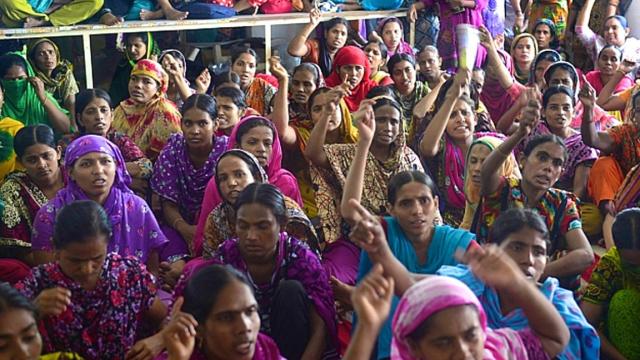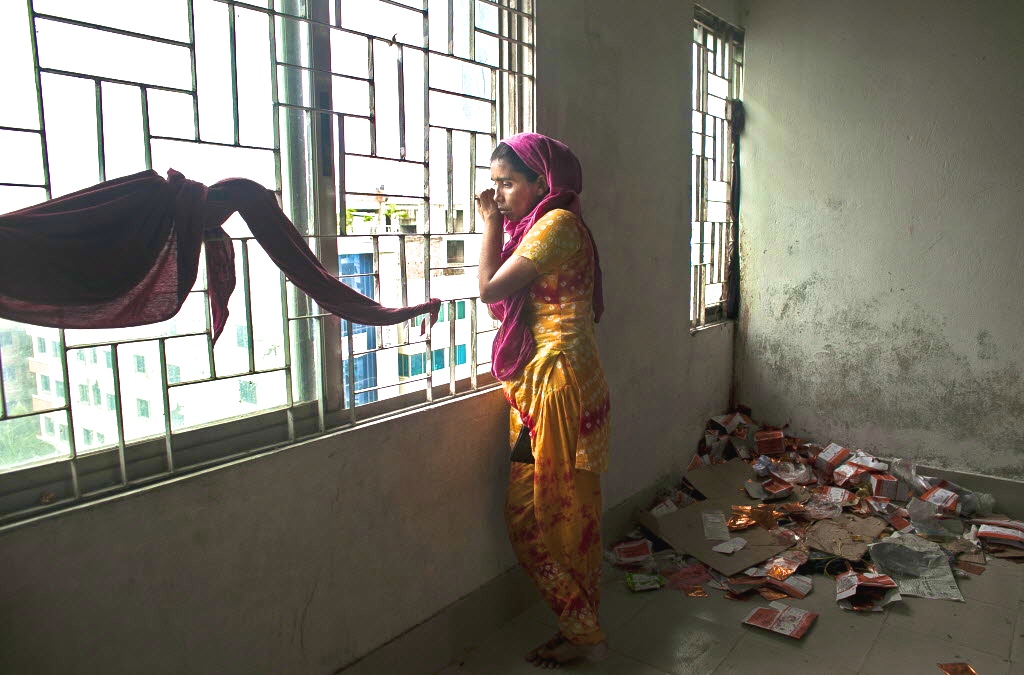
Garment workers in five Bangladeshi factories that supplied clothes for Walmart and other western retailers finally received their wages on Sunday, following an 11-day hunger strike.
The settlement came after the managing director of the Tuba Group, Delwar Hossain, was bailed on Aug. 5. Hossain has been in prisonsince February on charges of homicide and negligence leading to the death of 112 workers in a factory fire at the Tazreen Fashions factory in Dhaka in November 2012.
Workers stopped production on June 10 after the management failed to pay their wages in May, Shahidullah Azim, vice-president of the Bangladesh Garment Manufacturers and Exporters Association told the Guardian.
About 1,600 workers in the five factories, nearly 1,300 of whom are female, had been on hunger strike since July 28 demanding their back pay.
Mushrefa Mishu, president of Garment Workers’ Unity Forum, who headed the workers’ movement in the Tuba Group, said: “Withholding workers’ wages was dirty politics from the owners to have Delwar bailed out.”
Police detained at least three labor leaders including Mishu on Aug. 6 after she called for a shutdown of production in garment factories across Bangladesh until Tuba workers’ wages were settled.
Police also used batons and pepper spray on Aug. 7 to disperse the workers from the factory building in Dhaka and end the hunger strike.
The Tuba Group manufactures Fifa-endorsed clothing for European companies and supplied orders for Walmart.
The nearly 4 million workers in the Bangladeshi garment industry, 80% of whom are women, are the lifeblood of the country’s foreign revenues. Yet, in the global supply chain, where retailers look for competitive prices, workers have become victims of exploitative wages.
Most of the women working in the industry come from the remote and rural parts of the south Asian country, which has a population of 160 million. The garment industry pays a monthly minimum wage of £40 ($67), which has created a better living standard for poor women, who otherwise often work in middle-income and affluent homes as domestic helpers for wages as low as £11 a month.
“The only reason the garment industry does not have functioning trade unions and has poor wages is the poor bargaining capacity of female workers,” said Mishu. “This is happening partly because there is still a lack of leadership among our women and partly because they are not aware of their rights.”
The Bangladeshi government and industry leaders claim there has been significant improvement in safety and workers’ rights in the garment factories since the US cancelled trade preferences for the country in the wake of Rana Plaza disaster in April 2013.
The Alliance for Bangladesh Worker Safety said in July that about 300 trade unions had been registered but “the worker representative structures … continue to remain weak throughout the garment sector,” said Ian Spaulding, the alliance’s senior adviser.
3 WAYS TO SHOW YOUR SUPPORT
- Log in to post comments












